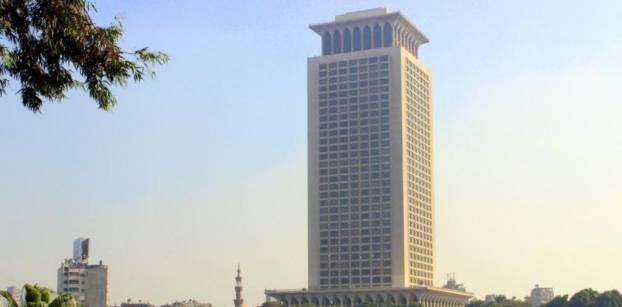Egypt dismisses accusations of interfering in Ethiopia’s affairs

The building of Egypt's Foreign Ministry. ASWATMASRIYA/ Ahmed Hamed
CAIRO, Oct 10 (Aswat Masriya) – Egypt denied interfering in Ethiopia’s domestic affairs after the later accused it of supporting Ethiopian armed opposition, a foreign ministry statement said on Monday.
Ethiopia’s government spokesman Getachew Reda accused elements in Egypt and Eritrea for financing, arming and training armed opposition groups following a wave of protests by Oromo group supporters over land grabs.
Getachew said that “there are all kinds of elements in the Egyptian political establishment which may or may not necessarily be directly linked with the Egyptian government.”
Meanwhile, Egyptian Foreign Ministry Spokesperson Ahmed Abu Zeid reiterated Egypt’s respect for Ethiopian sovereignty and denied intervening in its domestic affairs, in the statement.
He added that high level-communications are currently being conducted between both countries to “preserve the positive environment and the gains that were achieved in bilateral relations during the recent period.”
He also urged vigilance against any attempts to harm the brotherly relations between Egypt and Ethiopia.
Egypt had confirmed on Sunday that its ambassador to Addis Ababa met with Ethiopia's foreign minister to discuss the authenticity of a video reportedly showing a person speaking to Oromo Liberation Front in an Egyptian dialect.
According to the statement, the Egyptian ambassador said the video doesn't reflect any reality and that there might be elements seeking to “sow discords between Egypt and Ethiopia.”
Abu Zeid also confirmed that the meeting reflected a “mutual understanding of the importance of securing the positive momentum in bilateral relations.”
Tensions between Egypt and Ethiopia erupted in the past few years over sharing Nile waters as Ethiopia is building a hydroelectric dam close to its border with Sudan. Egypt has repeatedly expressed its fears that letting the water into the Grand Ethiopian Renaissance Dam (GERD) would cut its flow.
In September however, Egypt, Sudan and Ethiopia signed the contracts for the GERD technical studies and its potential effect on the downstream countries.









facebook comments